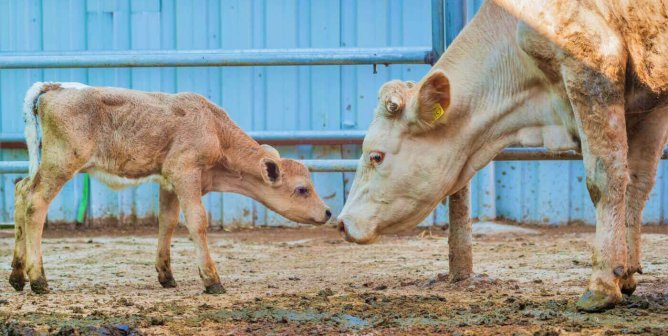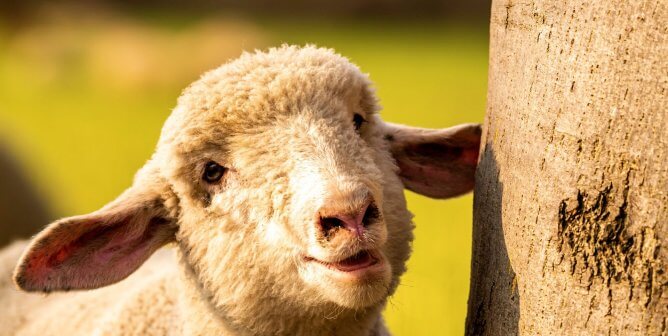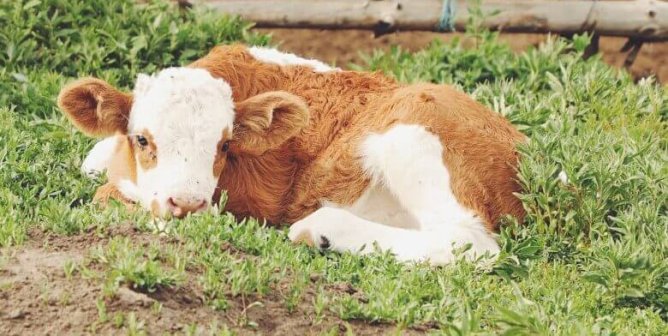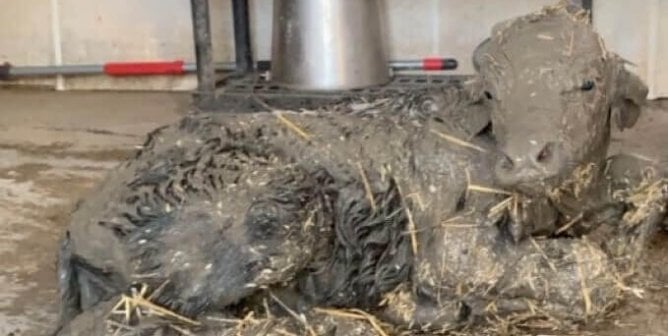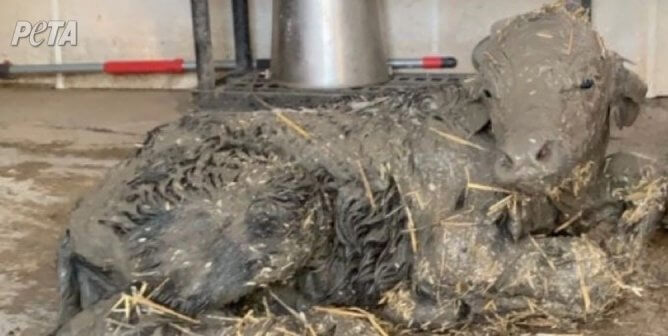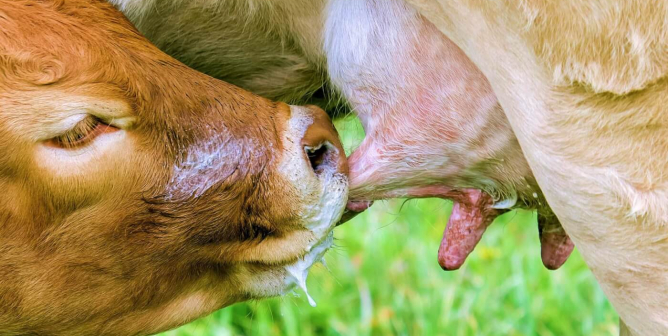Dehorning: Dairy’s Dark Secret
Many people are surprised to learn that nearly all cows used for milk are born with tissue that will develop into horns. That’s because most farmers remove the sensitive horn tissue or the horns themselves from the cows’ skulls using searing-hot irons, caustic chemicals, blades, or handsaws.
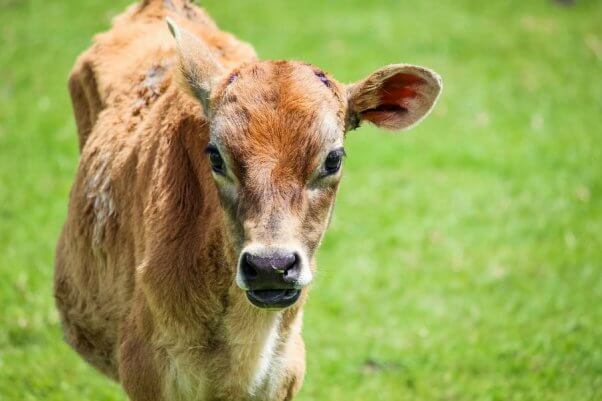
Animals often struggle violently and are therefore held still manually or in a “head bail” (a metal apparatus for restraining a cow by the neck) during the painful dehorning process, which is frequently performed without painkillers and results in severe pain that lasts for hours and can become chronic. Dr. William Muir, a professor of animal sciences at Purdue University, describes dehorning as “a bloody and painful process that no one likes to do.” A Vermont farmer who breeds cows for the dairy industry has admitted that only about 10 percent of calves who are dehorned receive proper pain medication.
This procedure is extremely traumatic for young calves, who are often just a few weeks old when their horn buds are burned or cut out. Older cows fare even worse. Dehorning in mature cattle usually requires the amputation of the horn, which has already attached itself to the skull. Tools used for this procedure include saws, sharp wires, and gruesome guillotine dehorners, which also cut off the surrounding skin. Horn removal in older animals can lead to postoperative problems of hemorrhages, tissue necrosis, bone fractures, sinusitis, and even death. For these reasons, in some Australian states and territories, it’s illegal to dehorn cows who are older than 12 months. The wound caused by this amputation can take weeks to heal.
Farmers are fully aware that dehorning is painful, and it’s up to the industry to phase out this excruciating mutilation. One simple solution is to breed naturally hornless cows. A single gene determines whether or not a cow will have horns, and this approach has proved effective in the beef industry.
However, the easiest and most effective way for consumers to spare cows the misery of factory farms is to stop buying cow’s milk and other dairy “products” and choose instead from the numerous vegan milks, cheeses, yogurts, coffee creamers, and ice creams available in grocery stores. Browse PETA’s website for hundreds of free vegan recipes, and pledge to go vegan today!
